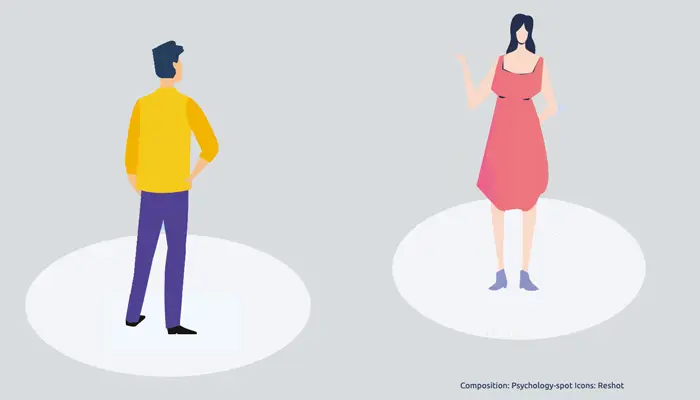
When something negative happens to us in our daily lives, from a traffic ticket to a disagreement with a co-worker, it is normal for us to feel frustrated, angry or tense. If we fail to manage those emotions, it is likely that they end up accumulating, so that, when we get home, we will be a bundle of negative feelings that leave us with our nerves in tatters. That, obviously, can affect the couple relationship. However, there is a way to break this toxic loop: tell what has happened to us.
Sharing negative experiences brings the partners closer
Psychologists from the University of Jena recruited 100 couples between the ages of 20 and 80. Each member of the couple first independently rated the closeness of their relationship and then participated in a three-week daily survey.
Each person received notifications to complete a survey on his/her mobile, six times a day for 15 days. In this survey, they had to indicate if they had recently experienced a “very unpleasant” event and if they told their partner about it.
They also rated how angry, down, disappointed, and nervous they felt, and indicated how emotionally close they felt to their partner at the time. During those three weeks, people acknowledged having told their negative experiences to their partner 57% of the time.
The researchers found that men benefited the most from telling their partner about an unpleasant event, as they reported a less negative mood afterwards. Overall, however, participants reported feeling closer to their partner after telling them about an unpleasant event or hearing about the negative experiences of the other.
Two and a half years later, the researchers contacted these couples again to assess the closeness of their relationship. Thus, they found that sharing these small daily annoyances with a partner has long-term positive effects: Those who regularly told each other about their negative experiences reported an increase in closeness during that period of time, but couples who never or rarely shared these experiences reported a decrease in emotional closeness.
How to strengthen the couple’s relationship? The secret is that both share their problems
Counting our problems, instead of ruminating them in silence, has several benefits. On the one hand, it helps us release tension, acting as an escape valve. Sharing our bad experiences helps us release the rage, anger, sadness or discomfort that these situations have generated, so our mood almost automatically improves. It has a cathartic effect.
This will prevent emotional tension from accumulating up, thus considerably reducing the chances of getting involved in arguments with our partner or overreacting to the slightest disagreement.
On the other hand, sharing daily bad experiences with our partner is a sign of trust, so it is logical that over time this leads to greater closeness. When we tell our partner about our problems, how it affects us and what we think about it, we let him/her into our inner world. We let him/her get to know us better. In the long term, that generates a greater connection and strengthens the emotional bond.
However, for this to work, both partners need to open up. The researchers found that closeness was weakened when only one of the people used to tell his/her negative experiences.
Therefore, it is important to share with our partner those problems, bad news or worries. If that person doesn’t listen to us or constantly minimizes our experiences, assume an attitude of emotional invalidation that, sooner or later, will build a wall between the two of us.
On the other hand, if both members of the couple are able to listen to the other, empathize with his/her problems, help he/she find solutions or simply support him/her, it is likely that the couple’s relationship will be strengthened.
“Sharing everyday problems helps couples to refine their mutual support strategies and build a shared reality that facilitates the interpersonal alignment of emotions, goals, and actions during future interactions,” according to these researchers. Consequently, the effects of that exchange can accumulate over time, fostering a positive relationship.
Source:
Rauers, A. et. Al. (2022) Ease of Mind or Ties That Bind? Costs and Benefits of Disclosing DailyHassles in Partnerships. Social Psychological and Personality Science; 10.1177.



